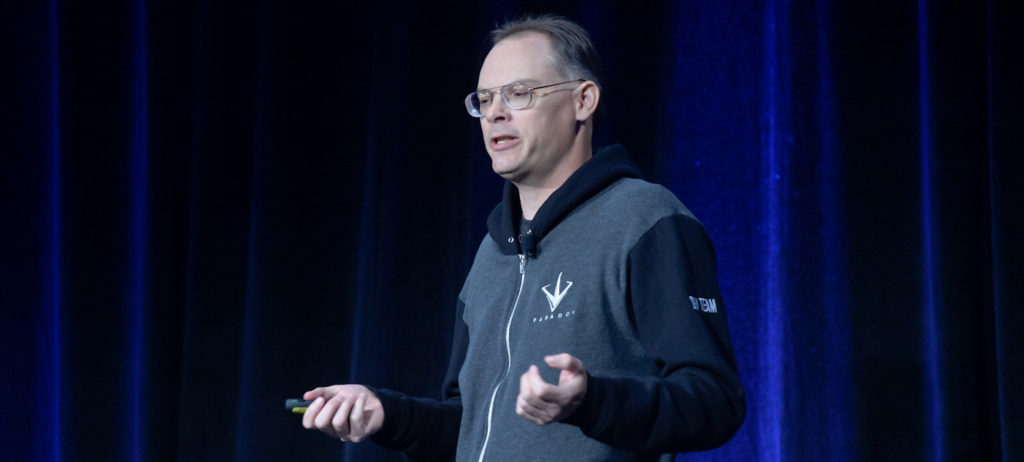Epic Games CEO Tim Sweeney shared his views on the gaming industry of the future. It follows from them that monopolists like Google and Apple are preventing the industry from becoming more open.

This provocative statement was made at the DICE Summit in Las Vegas. Speaking at the opening of the summit, Sweeney criticized the policies of major corporations. First of all, Google, Apple, Facebook and Blizzard, VentureBeat quotes.
About the problems of companies
I must say that loud accusations in particular against Google are in Sweeney’s style. It is not the first year he has been criticizing the Google Play business model, where Fortnite, we recall, has not been released. So at the big DICE event, Sweeney didn’t miss the opportunity to call Android a “fake open system.”
In particular:
- Google deliberately puts barriers in front of Android users. The Internet giant allegedly scares off players with warnings about non-existent viruses when visiting the Epic Games website, where you can download Fortnite.
- About Apple, the head of Epic Games responded quite succinctly. iOS, according to him, is even worse than Android.
- Facebook, as well as Google, harm their own audience. Corporations create free services, but users have to pay for it with their own privacy.
- At the same time, a number of companies also prevent users from freely expressing their political views. This is obviously about Blizzard and the situation with Hong Kong. Gaming corporations should not get into politics at all, they should remain neutral in every possible way, said the head of Epics. And he cited his own company as an example. By the way, Epic Games really spoke out about Blizzard and Hong Kong.

FortniteAbout the unified game world
- The future of the industry lies in the combined ecosystem and social activity of the players. Attempts by stores to divide the audience only hinder this.
- Sweeney cited Microsoft as an example. For almost 10 years, the corporation tried to make Windows a closed system — “like iOS”, but eventually abandoned this idea.
- Another important point is the need to reduce the share of stores. Stores are not only trying to distance players from each other, but also prevent studios from surviving, Sweeney said. 30% for Steam, App Store, Google Play and other platforms is too much. For successful operation and support of payment systems, 2.5-3.5% would be enough for corporations. That’s how much they charge for Visa and Mastercard transactions. At the same time, Epic Games Store charges developers 12%.
- Another attribute necessary for the industry of the future, according to Sweeney, is the ubiquitous crossplay. For the sake of cross-platform Fortnite, Epic Games has gone through difficult negotiations with Nintendo, Sony and Microsoft. According to Sweeney, it was worth it. The ability to play the same titles on different platforms allows you to create a “single game world” and give a growing audience a first-class gaming and social experience.
- It is this experience that should become a priority goal of gaming companies, the head of Epic Games added.
- Sweeney also called for getting rid of loot boxes and similar types of monetization. According to the head of Epic Games, it is impossible to undermine the trust of players by introducing gambling mechanics, just as it is impossible to turn games into “Las Vegas with slot machines”. There are loot boxes in Fortnite. But the company is trying to make them more transparent, Sweeney says, and from the Rocket League developer Psyonix, bought by Epic Games, the mechanics have completely disappeared. However, it was immediately replaced by crafting items for money.
Also on the topic:
